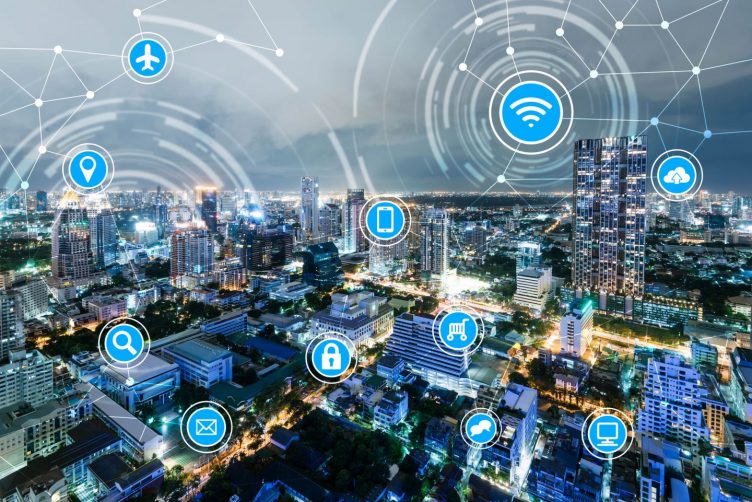
Mobile technology is on the cusp of its next big jump forward as telecom carriers begin to implement the new 5G wireless standard, which offers faster download speeds and greater bandwidth for processing massive amounts of information.
With speeds up to 10 Gbps, 5G is about a thousand times faster than 4G. That means it will support much faster mobile broadband, and promises to help unleash the full potential of the Internet of Things. “From virtual reality and autonomous cars, to the industrial internet and smart cities, 5G will be at the heart of the future of communications,” notes a report by the GSM Association.
Mobile carriers have already begun launching 5G this year. “We’re moving quickly to begin deploying mobile 5G this year, and start unlocking the future of connectivity for consumers and businesses,” says Melissa Arnold, president, AT&T Technology and Operations. “With faster speeds and ultra-low latency, 5G will ultimately deliver and enhance experiences like virtual reality, driverless cars, immersive 4K video, and more.”
A full build-out of 5G will take time. Mobile carriers have to make infrastructure investments in everything from switching equipment to cell towers. With 5G, more traffic can be handled in the same space, but the radial frequency of the coverage area decreases. As a result, the distance that can be covered by one cell goes down. That’s why mobile providers are working to deploy many small cells to facilitate 5G access. Once telecom companies in-fill their networks with these cells, consumers will have access to much higher upload and download speeds than ever before.
In addition to providing a much more robust pipeline for communications and data transfer, 5G will facilitate more granular insight into human mobility. Location data will become more accurate, and more conclusive. High volumes of data flowing from 5G networks will improve the training data quality for artificial intelligence that drives insights on human mobility. Better refined data also will translate into improved predictive analytics, and mobile network data will establish itself as the essential source of information for infrastructure development, public transport planning and mobility services.
As Prof. David A. Bader from the Georgia Institute of Technology, observed: “5G will enable a new era of opportunity as we are able to collect and transmit data sensed around the world, opening innovation to our creative minds for new ways to improve our human condition.”
This week our CEO Alastair MacLeod, alongside executives from all major U.S. telco carriers, will be speaking about the impact of 5G on smart cities at Mobile World Congress Americas in Los Angeles. If you’re attending the conference, be sure to stop by Alastair’s session on Thursday afternoon in Petree C.